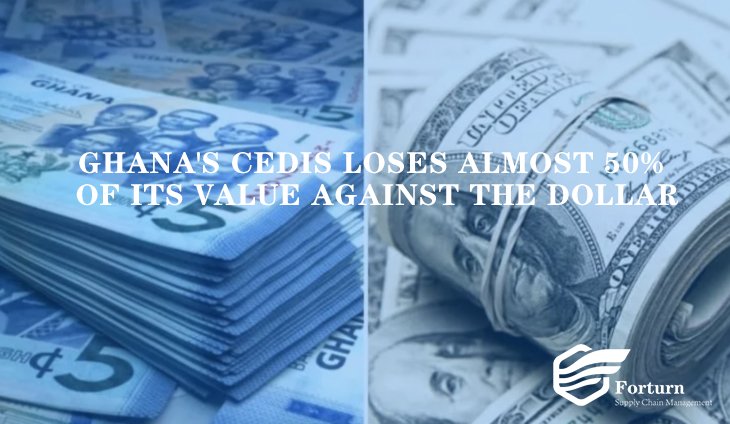Ghana’s cedis loses almost 50% of its value against the dollar
On March 27 local time, the Central Bank of Ghana stated that the Monetary Policy Committee raised the key interest rate by 150 basis points to 29.5%. The Monetary Policy Committee has raised interest rates by 16 percentage points since November 2021 to stem the nearly 50% slide in the cedis against the US dollar due to concerns over Ghana’s ballooning debt burden, inflation, and devaluation of the Ghanaian currency.
The depreciation of the currencies of many African countries
South Africa’s currency, the rand, has lost about 7% of its value against the dollar this year. The latest figures from Statistics South Africa show that South Africa’s consumer price index (CPI) rose 7.0% year-on-year in February, slightly higher than January’s 6.9%. Separately, South Africa’s main inflation rate, which strips out volatile food and energy prices, rose to 5.2% in February from 4.9% in January. A rise in core inflation also signals to the South African Reserve Bank that the current pace of rate hikes may not be able to curb inflation as expected. In addition to South Africa, the currencies of Egypt, Zimbabwe, Sudan, and other countries also experienced relatively large fluctuations, causing market concerns. The Federal Reserve raised interest rates aggressively, and investors sold devalued currencies and bought US dollar assets to obtain high returns. Developing countries in Africa and other regions are facing the impact of currency depreciation. The appreciation of the U.S. dollar has led to high international food and energy prices denominated in U.S. dollars, and high inflation rates in African countries, which may lead to food security problems. In fact, since last year, many countries, including Kenya and Ghana, have seen demonstrations against the high cost of living.
The media pointed out that the United States should not weaponize the US dollar
On the 28th local time, Bobby Naderi from British media wrote an article saying that Washington frequently weaponizes the US dollar and puts economic pressure on countries that do not safeguard US interests. This is a huge mistake. The U.S. uses the dollar’s influence as the world’s reserve currency to put countries that rebel against its foreign policy goals under intense economic pressure. Bobby Naderi pointed out that the instability of the current global financial system is the United States.
Expert: The stronger dollar has knock-on effects in Africa
American economics professor Jonathan Munemo recently wrote an article. The article said that as the strong dollar had a knock-on effect in Africa, trade volumes were squeezed and trade financing conditions tightened. People felt more pain, but African countries have limited policy options to deal with a strong dollar, and most are facing challenges. High-interest rates have increased the debt service burden on African governments, fueling concerns about debt sustainability. The International Monetary Fund and the World Bank consider many African countries to be at high risk of debt distress. Although African countries have chosen to raise interest rates in response to currency depreciation pressure brought about by the strong dollar, some experts said that if interest rates continue to increase, economic output will be squeezed and some economies may fall into recession.
Businesses and individuals engaged in trade
Be on the lookout for the latest changes to react differently. Especially after Covid-19, everyone must keep up with market changes.










